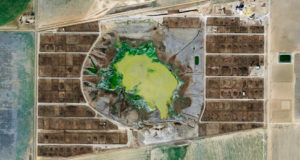As Health Adviser for the development of foreign populations, the stabilization efforts within my range include food security, natural and man-made disaster response, infectious disease control and wellness management. The conventional tools for this work are complimented with traditional-culture medicine (naturopathy, ethnobotany & all available natural therapies). For example, ethnobotanical livestock parasite is a clean way to improve the productivity of land and health of livestock while making less disease transmission to humans and sparing the environment of toxic drugs and chemicals. From the local, household setting to the national level, international assistance and economic growth (in the field-to-table and market continuum) are more important today than ever before. Food quality and food security are rapidly upwelling urgencies although not seriously addressed due to large, corporate food manufacturer’s and their desire to cloak their production materials, methods and quality of their products. Chemicals, GMOs, monocropping and nutrient depletion further deteriorate human and ecosystem health from the more acknowledged food additive scare and harm of processed food integration into our body make-up; the affects on other species and even the global environment to include weather is now more detectable that ever and clearly includes industrial agricultural culpability. The excessive enrichment of the environment in areas of plant cultivation and moreso in animal agricultural land is unbalanced with other areas which are robbed of water or made too enriched & toxic to support life. While zoonotic disease (diseases transmitted from animals to humans) has increased from 705 of all human infection to 75%, all bets are off that we know how to manage infections as new ones appear and treatment resistance percolates in many very common microbes which were susceptible to drugs. Climate change and the ever-increased communication of infectious pockets transmit microbes more and more readily while the microbial environs and host (plant, animal and humans) are far more easily adapted to by the simple microbes than we can hope to develop treatments for. In several professional roles as Medical Adviser, Veterinary Health Researcher, Preventive Medical Advisor, Medical Assistance Programmer, clinician, etc., this service is also tempered in ranges from non-profit organizations and academic institutions to the US government and foreign governments. These roles hone insight to viable solutions from local diseases to novel new diseases to the lands, watersheds, fields and family tables to international communication and trade.
My purpose has been aimed at understanding and arousing sustainable family plots, forming diverse community co-operatives/transportation to market and public-private partnerships. While assessing risks, benefits and sustainability of practices and technology an overarching theme emerged: increases in production lowered food quality & food diversity, while obesity, tooth decay, childhood diseases and internal medical problems (heart, stroke, arthritis, diabetes, cancer, etc.) increased. Therefore, the logical effort was clear to focus on enlivening traditionally diverse environmental interactions of raising food and use of natural remedits when and wherever they were available. Enhancing a wide variety of eco-friendly livestock and cultivars, and stimulating clean/organic artisanal plots for posterity and commerce would need to be tempered with economic growth and technological stimulation/ integration of a developing nation with world markets.
Mediation of increasing food production of high-quality agriculture is intent on superseding food security but enable a nation’s food supply to buyers outside of the county; commerce should be enhanced while maintaining a plentiful and healthful variety from local to global markets. Lucrative export business are proposed to concurrently facilitate in-country agricultural trade while enabling increased production, economic stimulation, improved quality products, sanitary practices. Diets and vegetal remedies of well-adapted traditional orientation are emphasized for sustainability and re-introduction of low-cost use but viable treatments which have been forgone by expensive pharmaceuticals and medical care.
These international endeavors begin with area assessments which survey food security, as well as the review of disease identification and control strategies. This effort includes research and prioritization of high-yield technology and educational applications, assessing national rural-development/agricultural goals and engaging foreign ministries, assistance entities, academic institutions, medical institutions, research entities, agronomists, veterinarians, farm owners and the general populace.
After over twenty years of foreign medical assistance, zoonotic disease (diseases shared between animals and humans) and food security analysis, it is my most effective contribution to help several areas of development: food security, traditional medicine (ethnobotany), zoonotic disease control and introduced infection concerns for indigenous people and unbiased nature of evolving infectious disease and global distribution of infectious disease.
By insuring the widest variety of foods are grown in every arable region, insuring the quality, sanitation, natural cultivars (non-GMO), toxin-free and free-range poultry and humane ecology-friendly livestock husbandry is the purpose of this promotion.
Please support the international education in healthful, equitable and viable agriculture for ecosystem health, world stability and future generations. Progressive attitudes and practices abroad also prove the urgency of US agricultural mindfulness, i.e., improved food quality from our present factory farming “standard” or “conventional agriculture”. Our US industrial agricultural practices require transparency, public education and examples of conscientious farming while the United States of America influences many foreign agricultural systems.
Please send your questions, comments and likes.
Respectfully submitted,
Guy Clark, ND
 Vitamin Agent The Health & Naturalistic Source
Vitamin Agent The Health & Naturalistic Source





